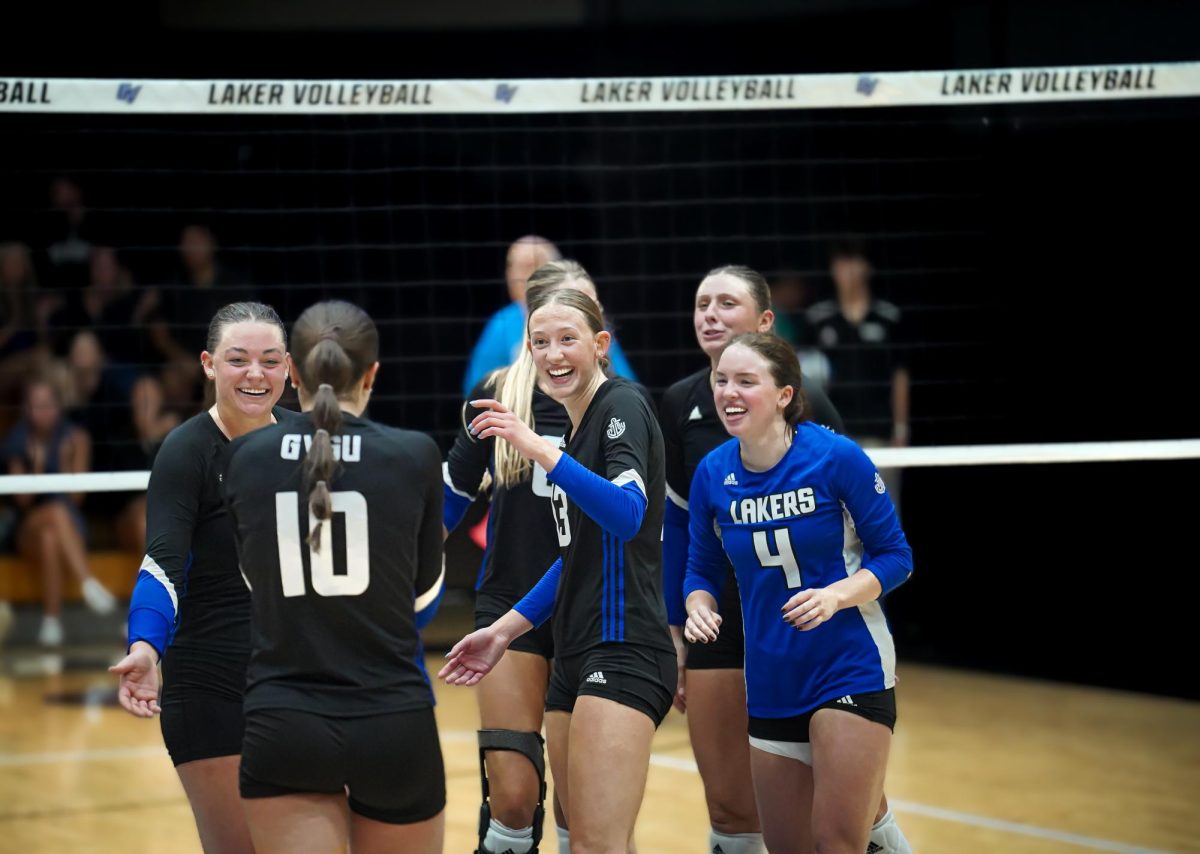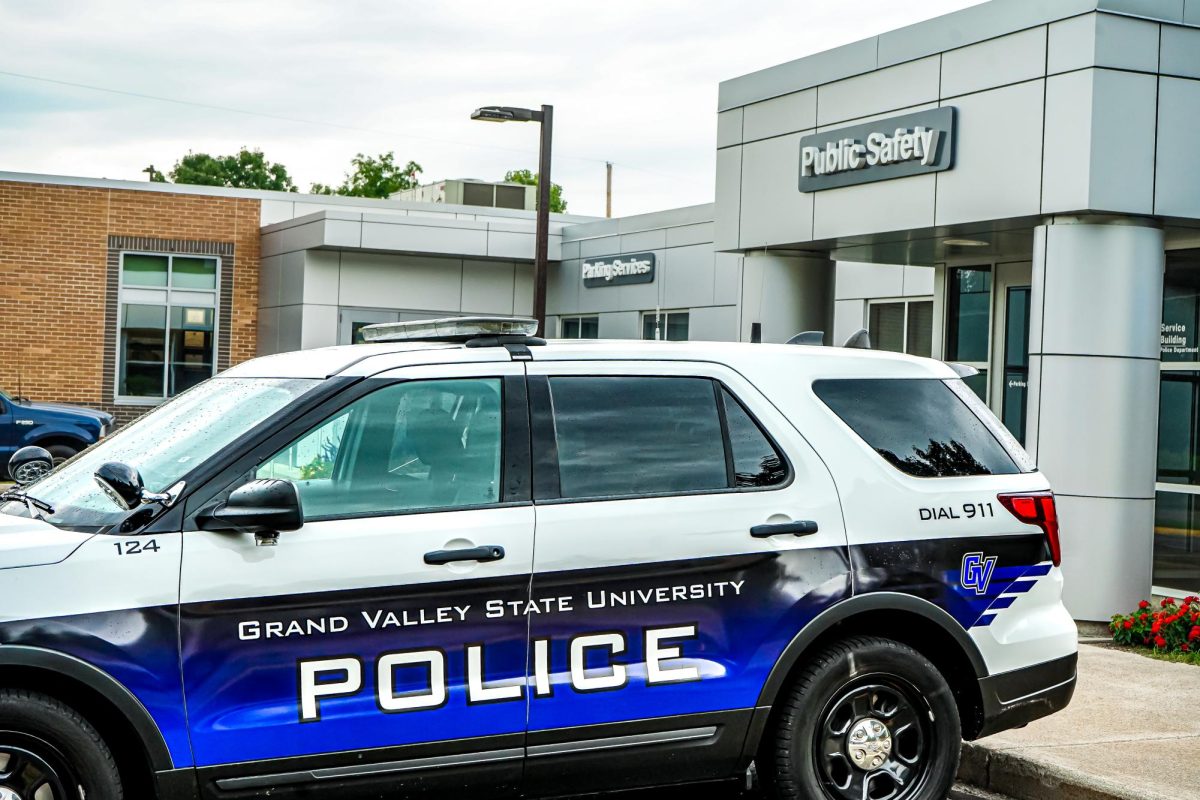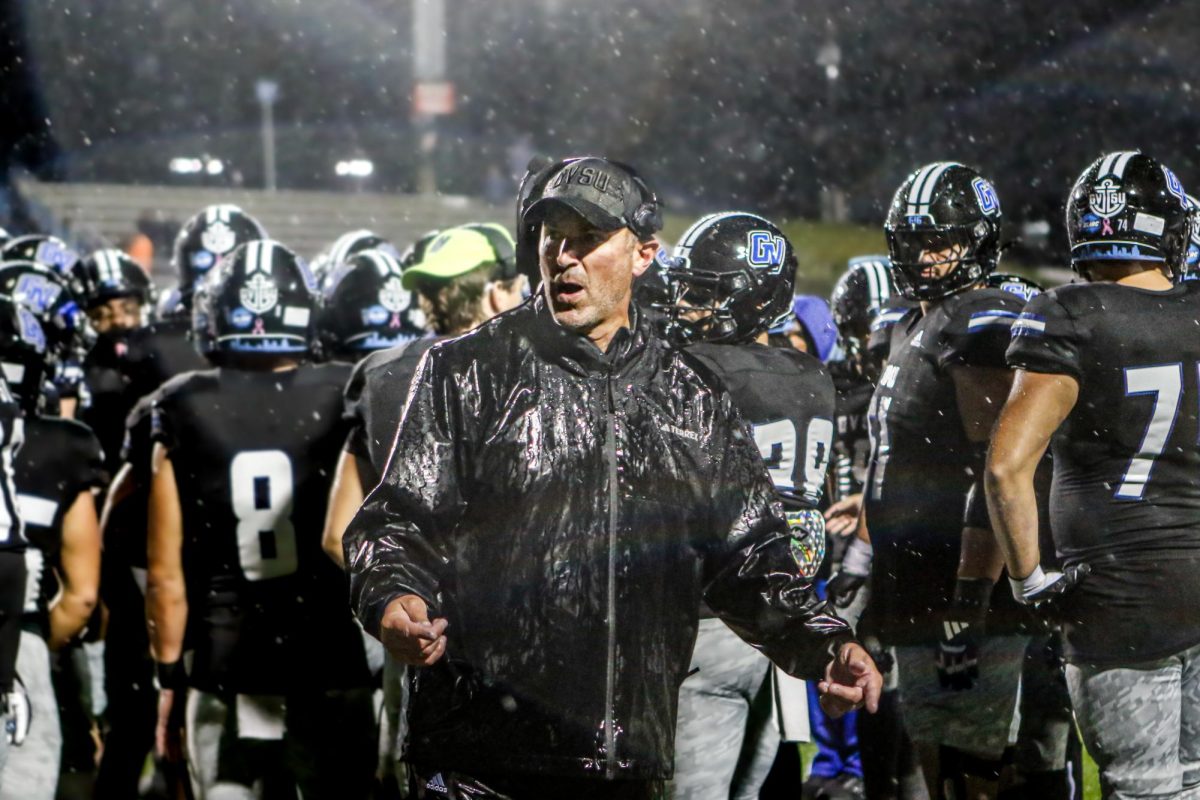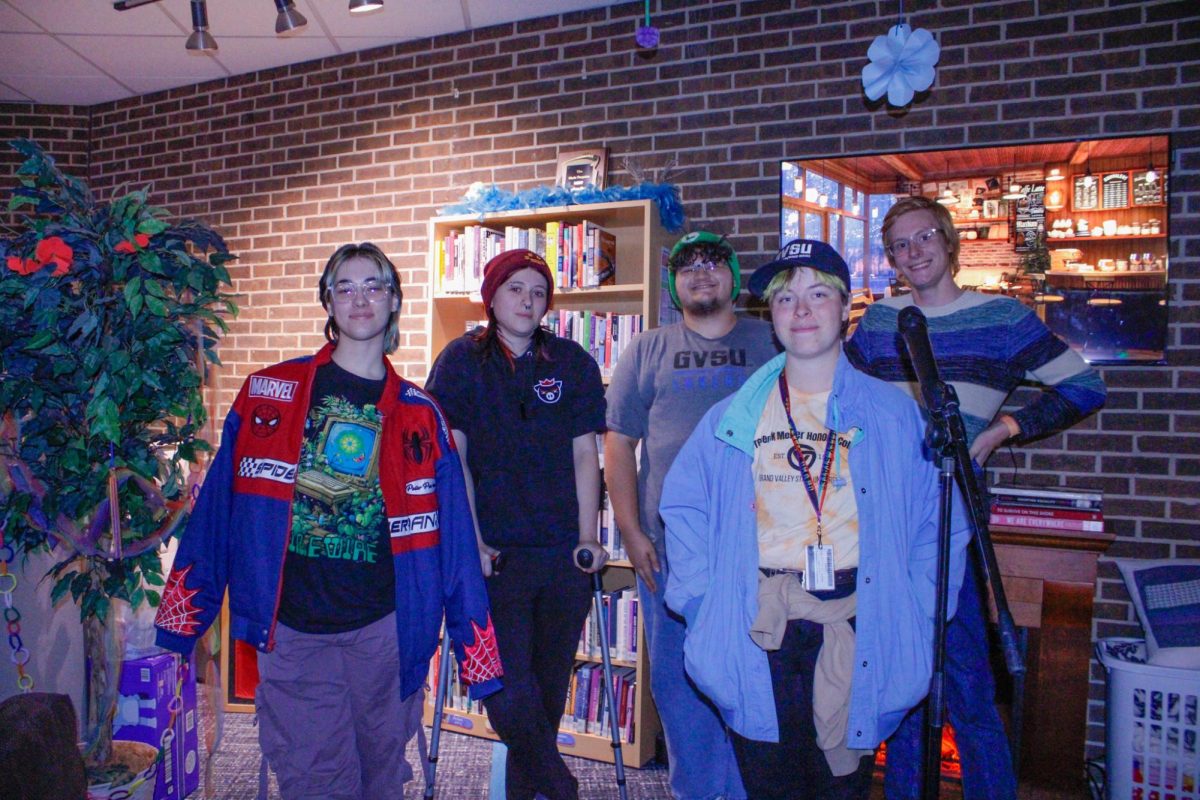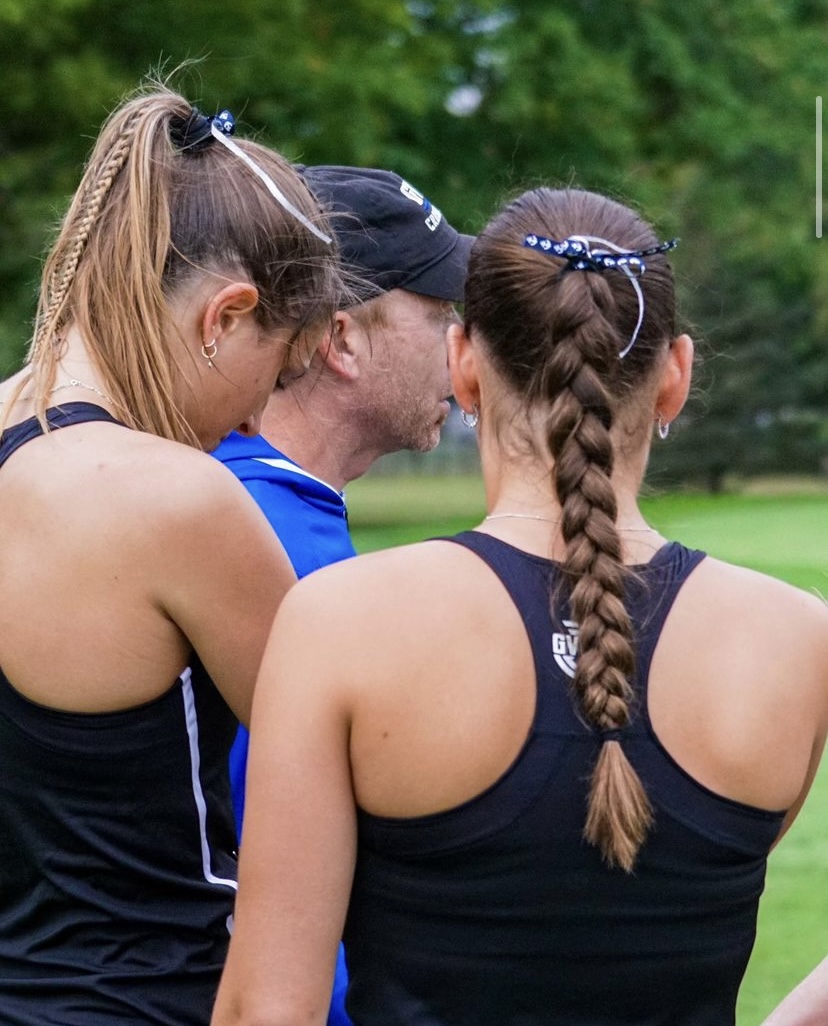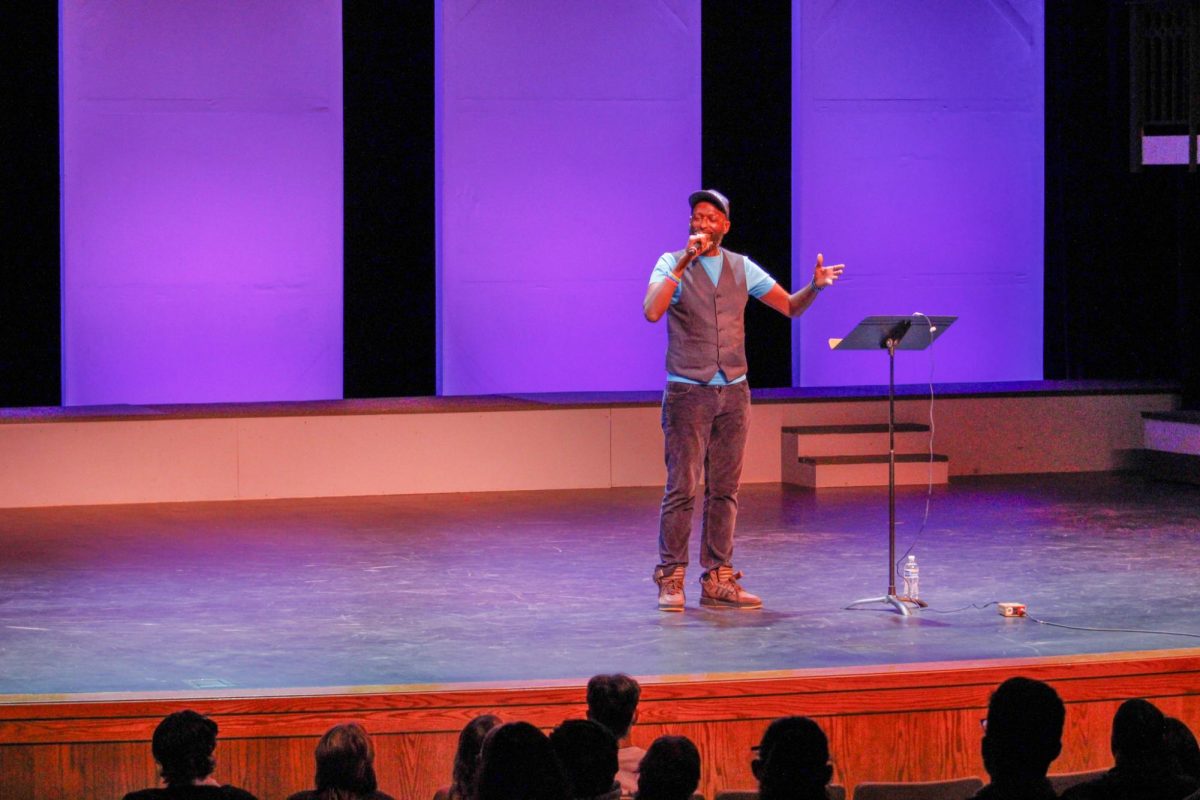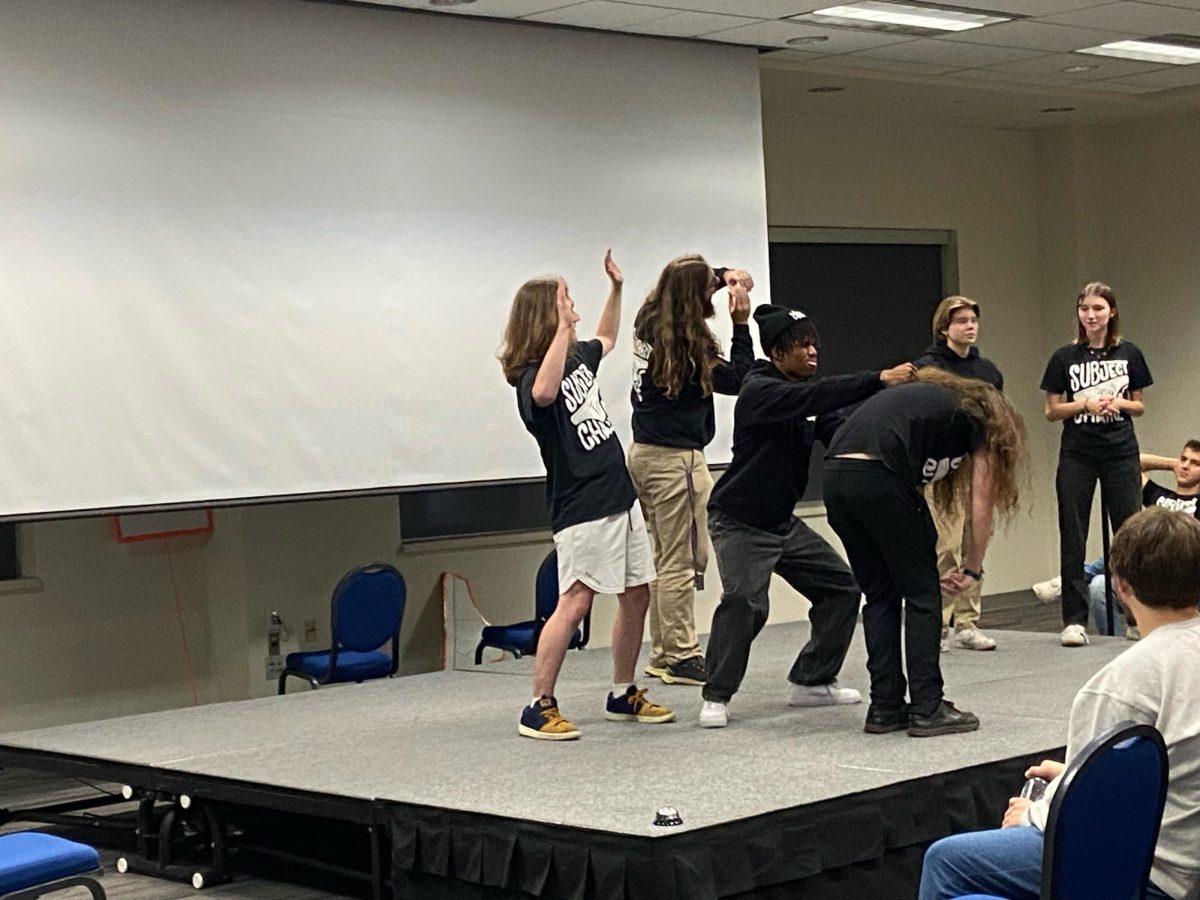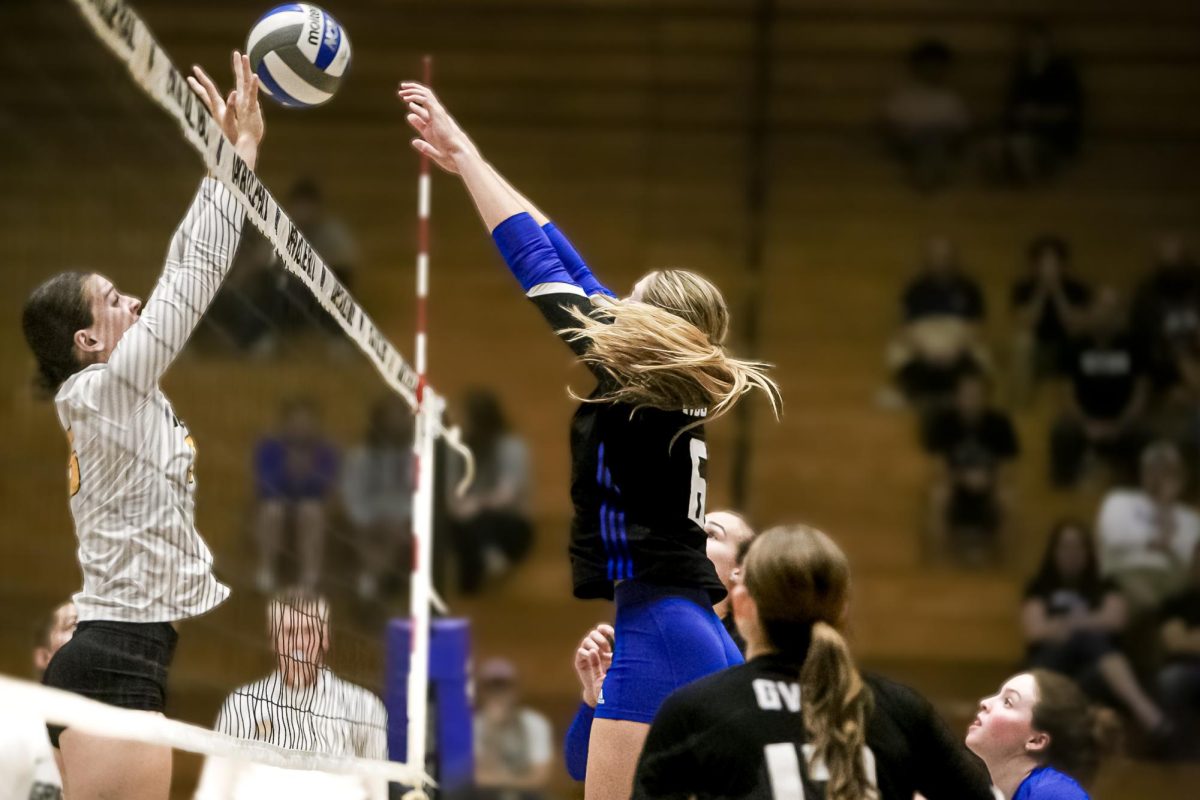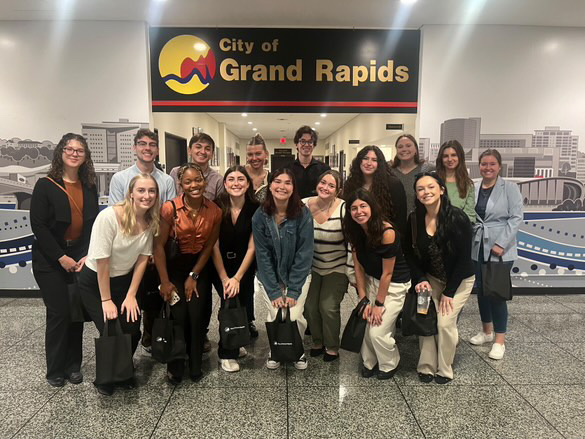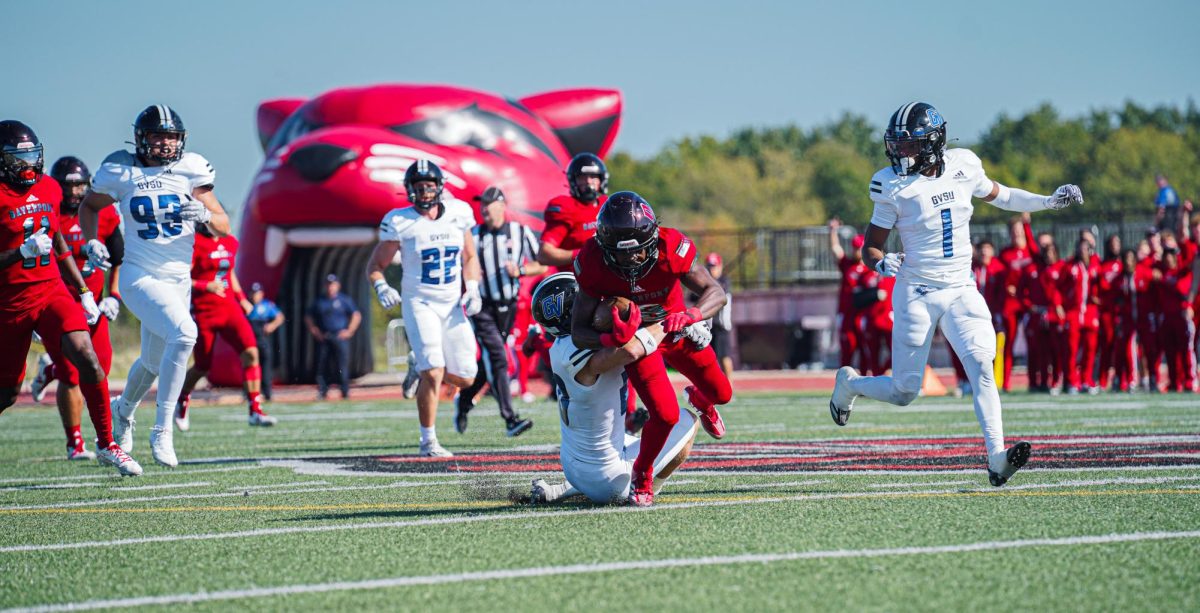At our fingertips
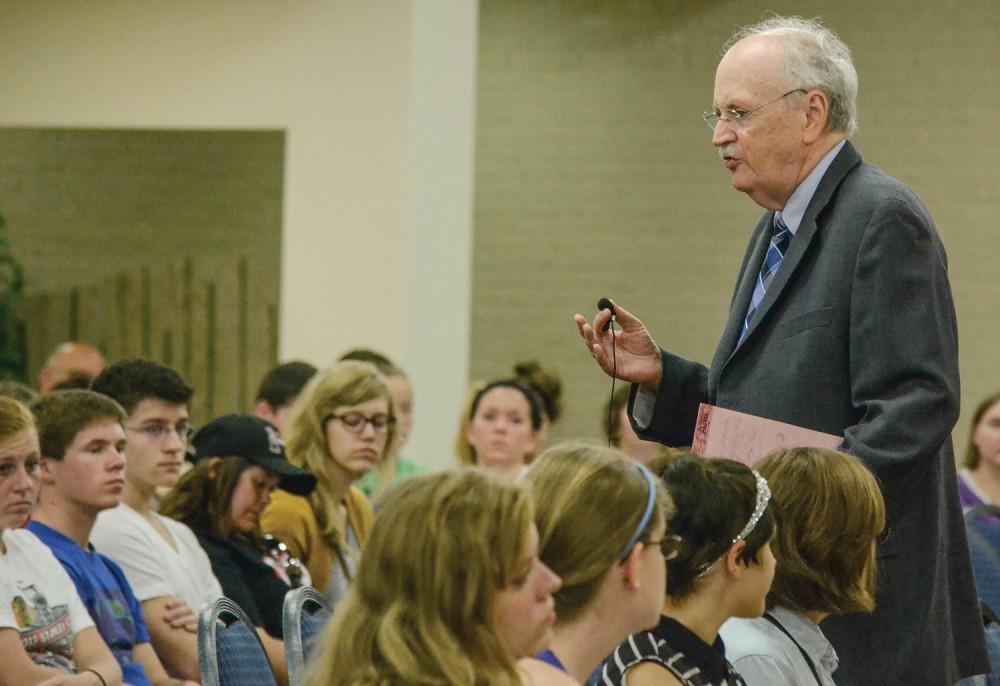
GVL / Hannah Mico Ken Bain, author of “What the Best College Students Do,” (published in 2012) visited campus on Monday evening to speak with the students of the honors college about his book, which was required reading for the incoming freshmen this year.
Sep 11, 2013
The incoming Honors freshman class at Grand Valley State University was required to read the book “What the Best College Students Do” to help them learn about how to approach college. The author, professor Ken Bain, came to campus Sept. 9 to talk to the students about his book and how he researched the best practices for students to approach education in order to achieve future success.
“This is an outstanding opportunity to hear from the person who pulled all the research and
brought all that together to help us become learners for a lifetime,” Jeff Chamberlain, director of
the Frederik Meijer Honors College, said as part of Bain’s introduction to the students.
Bain stressed to the students the different approaches to learning, which included deep learning,
strategic learning and surface learning. Deep learning, Bain said, is what all students should aspire
to as opposed to surface learning, which is just trying to make it through a course and not actually
taking anything away from it, or strategic learning, which is doing what it takes to get a good grade
in a course.
“Passion, interest, intrigue, curiosity—we actually have a lot of evidence that those are the factors
that lead people to take a deep approach to their learning,” he said.
The main problem with a strategic approach to learning is that students tend to only focus on
grades and avoid taking risks like enrolling in classes that could negatively impact their GPA.
“People who predominantly take a strategic approach to their learning will not be risk takers but
instead will constantly be worried about their GPA,” he said. “They won’t follow their passion and
interests and tend to be procedural instead of conceptual in their learning.”
Bain added that deep learners are also needed for society because they are much more likely to
become adaptive experts, which are people who can easily adapt to new situations and problems.
“This is important because we live in a world that’s changing so rapidly that we need adaptive
experts,” Bain said. “The routines we’ve adapted sometimes don’t solve the problem, and we need
people who are inventive and are full of that capacity to invent to find a solution.”
The main problem with the current educational system is that it uses grades as an extrinsic reward
or punishment for students, he added.
“The majority of college students around the world will predominantly take a surface or strategic
approach to their learning,” he said. “This is because they’ve been conditioned to take that
approach, and much of that conditioning has taken place in school.”
Students who want to become deep learners need to find an intrinsic reason to learn and motivate
themselves.
“Grades are an extrinsic reward or punishment; they’re not intrinsic,” Bain said. “And that makes all
the difference in the world. Extrinsic rewards and punishments tend to reduce interest, especially if
(students) feel manipulated by those rewards and punishments.”
In his book, he interviewed many people who he thought had been deep learners and who
accomplished much in life, and he said that the common thread between them was that they each
found their own motivation to learn outside of just getting a good grade in any given course.
“I set out to look at people who went to college and became very creative and productive
individuals,” he said. “I had one fundamental question: how did they approach college to make
them productive and creative individuals? I found that there was no single way that they
approached college, but they found intrinsic motivation for learning that motivated everything they
did.”
Bain stressed to the students that their conception of intelligence makes a big difference in how
they deal with failure: whether intelligence was a fixed idea that was set at birth or something that
can be expanded and stretched with effort. He said that from his research, people who used the
second approach to intelligence were able to deal with and recover from failure much faster than
those who held the first idea of intelligence.
Bain left the students with one last word of advice: “To succeed in college and life, you have to take
control of your own education, find an intrinsic motivator that will drive you, and find your own
reasons for working.”



